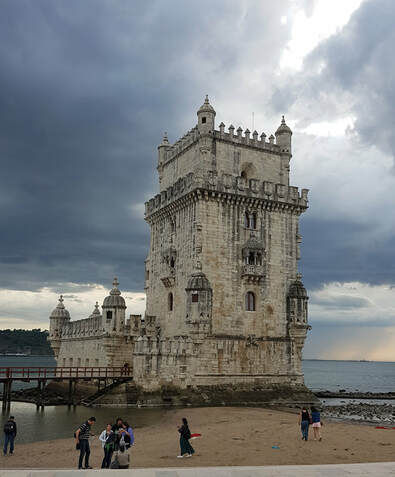Why you should visit Lisbon, part 1 – history
- Picture My Lisbon

- Apr 3, 2019
- 3 min read
Hello, dear reader!
You’re probably here because you’ve read about Lisbon and thought about visiting it. Or you just have some general interest on learning about Portugal’s capital city. So you ask me – what’s so special about Lisbon? So that’s what I’m going to explain in the next series of posts, starting today with history!
There are several theories on the creation of the city, but what is known for sure is that 3000 years ago it was settled by the phoenicians, who called it Alis Ubo (safe harbor), while the river became known as Taghi (good fishing, today it’s known as Tagus, or Tejo in portuguese). It was invaded by several different peoples throughout time, such as the romans, the suevi and the visigoths, and the moors (who arrived from the north of the african continent).

Eventually several small christian kingdoms were created in the Iberian Peninsula, and Portugal was one of them. The first king of Portugal, Afonso I, conquered the Al-Uxbuna (Lisbon as was known by the moors) in 1143, becoming the capital of Portugal in the next century. When one of his descendants conquered what today is the south of mainland Portugal, the Algarve, in the 13th century, it was time to modernize the kingdom, be it through creating new settlements, new laws, and even improving the economy. That was achieved with the beginning of the Discoveries, when the portuguese sailed all over the world in order to acquire and trade products from different civilizations (I’ll make a more detailed post about this later). Lisbon of course played an important role during this time, as it was from the capital that all ships departed and arrived full of goods! Many people moved there in search of wealth.
Unfortunately, in 1755, there was a big earthquake that completely destroyed the city, so most of what was Lisbon before this date has disappeared from the surface. Due to complicated political situations at the beginning of the 19th century the industrial development so typical of this century arrived much later to the country, and by 1910 the monarchy was abolished and Portugal became a republican country.
Most of the 20th century was characterized by a dictactorial regime led by Salazar, and only by the 1990’s, after Portugal entered the what is today the European Union, a big push towards the future could be seen and Lisbon became a very important city once again. For instance, in 1992 it was the european capital of culture, and in 1998 it hosted the last world expo of the century, which allowed a big part of the eastern side of the city to be modernized. Today, despite the economic crisis, Lisbon is a very trendy city. Contrary to the international perception, it is quite a progressive country, specially due to recent laws that have been approved – gay marriage is allowed, along with abortion and child fostering by gay couples. The state has no official religion, even though a big part of the population consider themselves catholic due to our cultural background.
Well I hope you enjoyed this brief history lesson, and also that this will give you some insight on why you should visit the capital of Portugal. Make sure you hit the subscribe button on the left if you’d like to follow me on Facebook, Youtube (I intend on posting some videos later on), Instagram and Twitter. Feel free to also give me some feedback on how I should organize this blog, of even share some of your questions about this city!







Comments